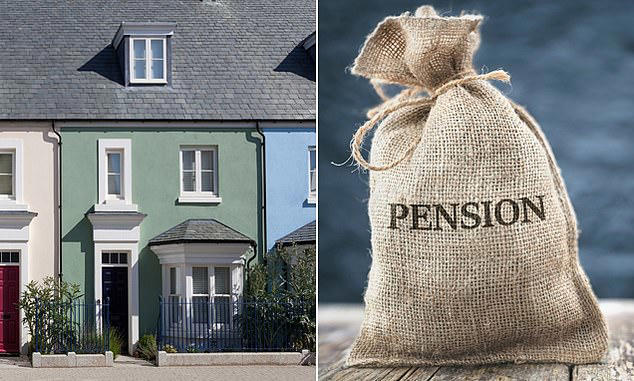More young people believe they will use property to fund their old age rather than pensions, even though few have reached the stage of having a mortgage yet, research reveals.
Generations aged 27-plus all say they are more likely to rely on pensions as their main source of wealth in retirement - particularly those aged 60-78. Young adults intending to use their homes as a source of retirement income may not have realistic expectations given the nature of the housing and mortgage market today, suggests Standard Life which carried out the survey.
Standard Life says both property and pensions have their merits as a source of retirement income, but points out many people are still likely to be paying rent or mortgages in later life.
Its survey found just one in ten people aged 27 or under currently have a mortgage - though some of those asked were too young to get one - and one in five believe they will still be paying off a mortgage in retirement.
Source: Standard Life
© Provided by This Is Money
Standard Life's managing director for retail direct Dean Butler says "the fact that those closest to retirement age favour pensions gives us an insight into what most people end up doing when it comes to their retirement income. For young people it's perhaps understandable their initial focus is on property given the significant barriers to getting on the housing ladder today. Relying on one asset alone for your retirement can be risky, so it's sensible, if at all possible, to build up a more diversified portfolio that's made up of different funding options and not to overlook the benefits of pensions as well as easy access 'rainy day' savings."
Standard Life surveyed more than 6,000 people and responses were weighted to be nationally representative.
Relying on pensions in retirement
The advantages of pensions are tax relief on contributions, free employer contributions, and potentially benefiting from investment growth, says Butler.
However, private pension savings cannot be accessed until age 55 at present, and this will rise to 57 in 2028, he adds.
Butler explains that people with a pension they have to invest themselves - a modern defined contribution pension - have to assess how long it needs to last and how much to take each month in retirement, unless they buy an annuity that provides a guaranteed income for life.
Using a property to fund old age
"With property, there's the option to sell before the minimum pension age but for most people, their property will be their home – so to access any money they'll have to downsize, move to a cheaper area or consider equity release,and equity release can be valuable for people without any other assets, but it's important to take financial advice first" says Butler.
'In retirement we need a source of income and somewhere to live'
'The natural impulse when thinking about our retirement is to prefer something that we understand like property – after all, most of us live somewhere,' says Rob Burgeman, investment manager at RBC Brewin Dolphin.
'Pensions can seem like a vague concept, where the benefits lie years in the future, but that would be a mistake.'
How to turn £100 into £225 with your work pension
Simon Lambert explains the 'get rich slow' scheme that requires a lot of patience but can seriously pay off, especially if you start doing it as early as possible.
> Learn this important pension saving trick
He points out the benefit of pension tax relief, saying "Even for basic rate taxpayers, every £1 that you put into a pension only costs you 80p, with the differences being even starker for higher rate payers. Add to this the fact that these savings can then sit in a tax efficient pool, with no liability to income tax or capital gains tax, with any taxation only due when you draw on those pension benefits. Finally, multiply this by one of the most powerful forces in the investment world, compound returns, whereby savings that you make today can grow by 50 years or more in this environment – and the arguments for pension saving are significant, especially for savers who use their telescope rather than their microscopes for looking at opportunities."
Burgeman stresses that all the above is not meant to denigrate property "we all need somewhere to live, after all. However, in retirement, we also need a source of pension income as well as somewhere to live. The correct answer, then, is to try and find a balance between the two and for the younger generations to understand that even modest amounts of money saved today have a significant effect on the long-term value of their pension pot and, therefore, the choices that they can make as they near retirement."


